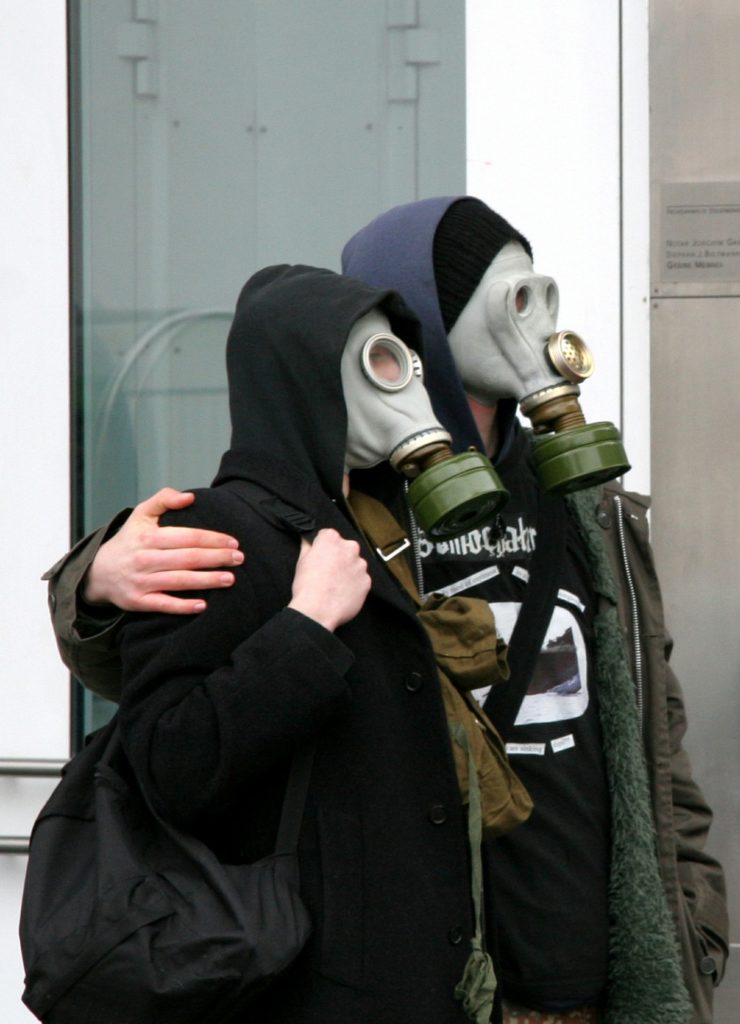Hurricanes, earthquake, fires — there have been so many natural disasters in recent weeks around the world that it all felt a bit apocalyptic. As people struggled with losing homes, possessions and entire communities as well as loved ones and a sense of normalcy, you would think they’ve suffered enough. But as fate would have it, natural disasters often lead to other kinds of suffering — divorce.
Really? 
According to research, yes. Sometimes.
Researchers looked at what happened after 1989’s Hurricane Hugo. What they found wasn’t totally unexpected — “a life-threatening event motivated people to take significant action in their close relationships that altered their life course” — sometimes marrying or having a baby, but just as often divorce.
Divorces didn’t spike after 9/11 — a manmade disaster. In fact, they went down, just as they did after the Oklahoma City bombing in 1995, another manmade disaster.
But natural disasters? They are not kind to marriages because they create a huge amount of stress that hits aspect of a couple’s daily life, including their financial and employment situation, and can trigger anxiety and depression — all of which take a relationship to a breaking point.
‘Life is short’
As Catherine L. Cohan, a clinical psychologist and assistant professor of human development at Penn State, says, “People are confronted with the realization that life is short. It’s too short to be in this unhappy situation.”
That may not be the thinking in places like Syria, where an ongoing war has created a situation that has led to more divorce, child marriages and polygamy among refugees with inevitably long-lasting repercussions. This is not a “life is too short” thing.
So will we see more divorces in Florida, Puerto Rico, Texas, Mexico and Northern California because of the recent hurricanes, earthquake and fires? Maybe. And this may be the new normal: With climate change and political turmoil around the world, we are going to be facing more disasters — natural and manmade — ahead. Sadly, children are doubly impacted — first by the disaster, then by the divorce.
Is there a way to avoid it?
Preparing for disaster
Joan Tanzer, a woman whose house was destroyed in 1991’s Oakland Hills fire, advises those who recently lost their homes in the Northern California fires, “Kiss your hubby a lot.”
Really, you’ve got to take care of yourself and your twosome. I really think that that got overlooked. We had a support group afterwards. There were 13 of us, seven divorces. These weren’t new marriages, these were established marriages. The strain of even renovation is a big factor in divorce. But doing this is just crazy.
Of course, there are other stressors that impact relationships — and it’s often gendered. Women who are diagnosed with cancer or multiple sclerosis are six times more likely to find themselves separated or divorced shortly after their diagnosis than if they were a man, according to a study. And parents of children with special needs or who have cancer often end up divorced.
While we all live with death and loss, many of us may also know tragedy intimately; in the course of a lifetime, there’s a 22 percent chance we’ll experience a natural disaster, a 69 percent chance we’ll experience a traumatic event — a tragic death, an automobile accident, an assault.
The unexpected can throw a wrench into the expectations of otherwise happy couples. So what to do about that?
Reassessing what matters
This may sound silly and I’m certainly no relationship expert — nor would I want to be. Still, I would embrace the idea of the unexpected into my life plans, especially my romantic life plans. When we take them for granted, we may miss out on appreciating the beauty of the day-to-day gifts we’ve been given, as mundane as they may be. And to appreciate the love we feel for and get from our partner. I’d also want to learn how my partner experiences grief — it may not be the same as my way, opening a door to misunderstands and frustrations.
Many people talk about how a tragedy has made them reassess what matters in their life. That’s fine, and yet I can’t help thinking that we shouldn’t have to experience an earthquake, fire, hurricane, cancer, sick child — tragedy — to make us know exactly what matters. Or do we?
Want to learn how to individualize your marriage? (Of course you do!) Then read The New I Do: Reshaping Marriage for Skeptics, Realists and Rebels (Seal Press). You can support your local indie bookstore or order it on Amazon.

















Now that you mention it I have noticed that more divorces happen around various traumatic events. Maybe it just indicates that marriage itself is somewhat stressful for some of us and adding to the mix pushes it past tolerable levels.
I think you are right. If you take an inherently flawed legal construct (marriage) which is particularly unfair to men and add external stressors to it then you have a recipe for disaster. Of course you can save yourself all this grief by not getting married in the first place. Unfortunately too many men don’t realize this until it is too late.